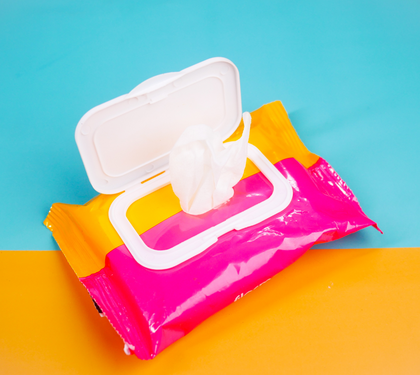In recent years, many households have felt the pinch of the rising cost of living. From groceries to utilities, every expense seems to be climbing. However, amid this financial strain, adopting sustainable practices can provide some much-needed relief. By making thoughtful, eco-friendly choices, we can not only reduce our environmental footprint but also save money. This article will explore how sustainability can help alleviate the cost of living crisis, with a focus on practical swaps like reusable baby and makeup wipes, and toilet paper spray as an alternative to wet wipes.
Understanding the Cost of Living Crisis
The cost of living crisis is characterised by the increasing expense of basic necessities outpacing wage growth. This situation forces families to make difficult choices about how to allocate their limited resources. Rising inflation, global supply chain disruptions, and economic uncertainty exacerbate the problem. In this context, sustainable living offers a dual benefit: it supports environmental goals while providing tangible financial savings.
The Financial and Environmental Benefits of Reusables
One of the simplest ways to cut costs is by switching from disposable products to reusable ones. Let's delve into how this works with specific examples:
-
Reusable Baby Wipes:
- Cost Savings: The average family with a baby spends hundreds of dollars annually on disposable baby wipes. Reusable cloth wipes, which can be washed and used repeatedly, represent a one-time investment that pays off quickly. Over time, the savings can be substantial.
- Environmental Impact: Disposable wipes contribute significantly to landfill waste. By switching to cloth wipes, you reduce the amount of non-biodegradable waste, helping to mitigate pollution and reduce the strain on landfill sites.
-
Reusable Makeup Wipes:
- Cost Savings: Similar to baby wipes, disposable makeup wipes can add up in cost. Reusable makeup pads, made from materials like bamboo or cotton, can be washed and reused hundreds of times. This switch can save a significant amount of money in the long run.
- Environmental Impact: The beauty industry generates a large amount of waste through single-use products. By choosing reusable makeup wipes, you decrease your contribution to this waste, promoting a more sustainable beauty routine.
-
Toilet Paper Spray:
- Cost Savings: Wet wipes are often used for their added cleanliness, but they are not only expensive but also harmful to plumbing systems, leading to costly repairs. A toilet paper spray, which moistens regular toilet paper, provides the same level of cleanliness without the high cost.
- Environmental Impact: Wet wipes are notorious for causing sewer blockages and are a significant contributor to marine pollution. Using toilet paper spray reduces the number of wet wipes entering the waste stream, helping to protect water systems and marine life.
Practical Steps to Implement Sustainable Choices
Making the switch to sustainable products is easier than it might seem. Here are some tips to get started:
-
Research and Purchase: Look for high-quality reusable products. While the initial cost might be higher than disposable counterparts, remember that these items will last much longer and save money over time.
-
Establish a Routine: Integrate these products into your daily routine. Have designated storage for reusable wipes and a small laundry bag to collect used ones. Establish a habit of using and washing these items regularly.
-
Educate and Involve the Family: Get everyone in the household on board with the changes. Explain the financial and environmental benefits to foster a sense of shared responsibility.
The Broader Impact of Sustainable Living
Adopting sustainable practices extends beyond personal savings. It contributes to a broader movement towards environmental stewardship. By reducing waste and conserving resources, we collectively work towards a healthier planet. Moreover, widespread adoption of these practices can drive market demand for sustainable products, encouraging more companies to develop and offer eco-friendly alternatives.
In conclusion, sustainability offers a practical and impactful way to address the cost of living crisis. By making small changes like switching to reusable baby and makeup wipes, and using toilet paper spray instead of wet wipes, we can save money and reduce our environmental footprint. These changes not only benefit individual households but also contribute to a more sustainable future for all. Let's embrace these simple yet powerful practices to navigate the financial challenges of today while safeguarding the planet for future generations.



